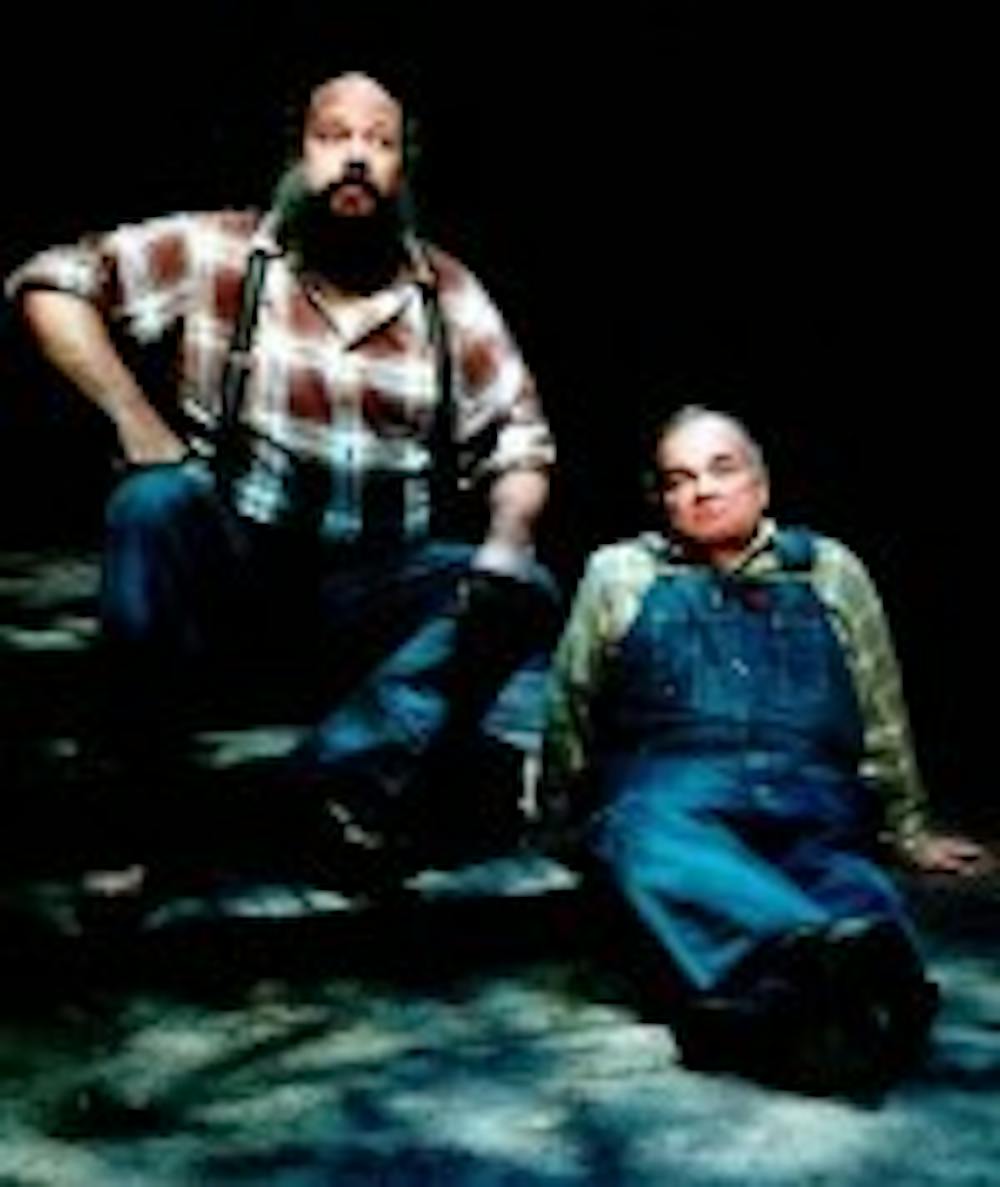"I'm from Toronto."
"Oh, that's too bad."
UB students hear this sort of exchange frequently, since Buffalo is situated close to Canada. But when the joke is made, one generally assumes it is "too bad" because the pitied individual is Canadian - not because, as in "The Drawer Boy," he is from the city.
Michael Healey's "The Drawer Boy," currently onstage at Studio Arena, is based on events that took place in Blyth, Ontario, during the 1970s. A group of actors from Toronto went and interviewed farmers in the rural town to create a documentary play.
Similarly, Miles (Brian Hutchison) travels to a farmhouse owned by Angus (J. R. Horne) and Morgan (John Ahlin) to research a play he hopes to write with members of his acting "collective." He finds himself drawn into the strange lives of the two older men, one of whom - Angus - suffers from a bizarre war injury that puts him in a position similar to those of the hero of Chris Nolan's 2000 film, "Memento."
Angus cannot remember more than a few minutes at a time and repeatedly forces Morgan to relate the story of how Angus's memory was lost: What the two men call the story of "the two tall girls." When Miles co-opts Morgan's story for his play, Angus begins to remember the past and Morgan is forced to come to grips with the friendship that has been kept static for years.
Because of the play's relationship with time, the action seems to take place within a dreamlike series of events, rather than any concrete number of days. Lights fade out and in, separating the end of one scene from the beginning of the next. Although the program indicates that the action takes place over about 15 days, there is little way for an audience to tell this, other than the subtlest clues in the dialogue. The foggy way in which time passes makes Angus' inability to remember more than a few moments at a time strike home.
Eager and intent on his goal, Miles seems at first na??ve and at last competent. Hutchison is convincing in his Canadian accent, despite his Pittsburgh origins. His performance as Miles is not quite endearing, but he thankfully avoids putting his hosts (as well as the audience) off.
Ahlin's performance is probably the most engaging, with a character whose motivations are complex and layered. Just when the audience thinks it knows what might come next, Ahlin takes his performance the other way, keeping everyone alert and paying attention to a play which, if not for his constant reshaping of his role, might have caused some to grow weary.
As Angus, Horne is at times eager and happy, then short-tempered and frustrated. Although "The Drawer Boy" was written a year before the release of "Memento," the similarities between how Angus and Leonard Shelby (Guy Pearce) deal with their disability are striking. Having watched "Memento" multiple times, one finds that watching Morgan and Miles deal with Angus is a bit like watching Nolan's film from the perspective of Carrie-Anne Moss's or Joe Pantoliano's character.
Triangles of drama exist within this work, and the ever-shifting focus of tension moves from between Angus and Miles, to Miles and Morgan, to Morgan and Angus - and then back again. Like the "two tall girls" and the two boys who loved them, the cast of Healey's drama continually shifts relationships. Reflected by the very stars in the "sky" above them, these three men relate to one another like a changing constellation of people.
Meanwhile, the audience is left with a quiet and intense drama that results from watching how all three are changed by their closest friends and deepest secrets.





